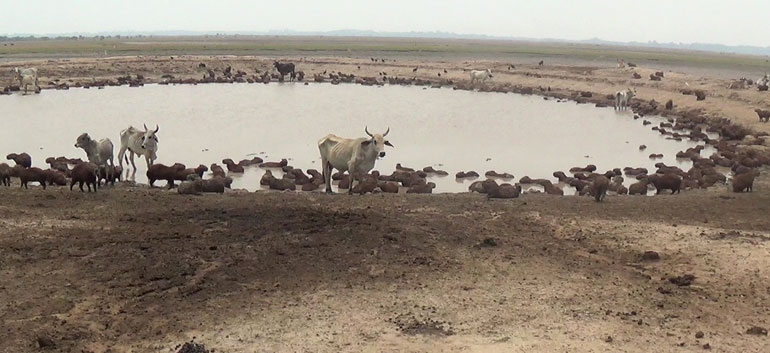A new report by the United Nation’s World Food Program (WFP) revealed that the risk of natural disasters in Colombia is high due to the effects of climate change.
The findings were published by the WFP on Tuesday, in a new atlas that highlights areas in the Andean region that are vulnerable to natural disasters and food insecurity resulting from climate change.
Titled the “Atlas of Food Safety, Disaster and Climate Change,” the report focuses specifically on areas throughout Colombia, Ecuador, Peru and Bolivia that are in critical need of intervention.
The report revealed that low-income and marginalized communities will be impacted the hardest, particularly in their ability to access basic services such as food and water.
MORE: Govt asks Colombians to save water as drought crisis continues
In a statement released online Miguel Barreto, the WFP’s regional director said, “In the four countries that were studied in the Andean region, the low-income communities have the same problems when trying to access basic services such as water, energy and markets. This reduces their response capabilities and makes them more vulnerable to climate disasters.”
“The atlas can also provide guidance in making decisions of governments helping to plan and take action to mitigate the impact of climate disasters, such as loss of livelihoods and rising food process, and to invest in reducing the risk of disasters,” Barreto continued.
According to the atlas, there are six departments in Colombia that fall under the category of “Grave Vulnerability, and six others that fall under the category of “Very High Vulnerability.”
The states of Magdalena, Cesar, and Sucre are among those that are the most vulnerable.
MORE: Colombia’s Sierra Nevada without snow by 2030: Santos]
Climate change has been a frequently discussed issue in Colombia recently, particularly after a series of natural disasters affected the country.
A catastrophic drought continues to plague the eastern state of Casanare, where more than 20,000 animals have died due to lack of water.
A recent report by the National Unit for Disaster Risk Management (UNGRD) highlighted 25 municipalities currently experiencing severe water shortages, less than half of which have adhered to established crisis protocol.
A wildfire also broke out in the Sierra Nevada mountains that consumed over 3,000 acres of forest.
The fire, which began at the end of March, spread rapidly through the Caribbean mountains, the highest coastal range in the world, destroying coffee, banana and palm crops throughout one of Colombia’s most bio-diverse regions.
Furthermore, Colombia’s president Juan Manuel Santos announced recently that the country’s treasured snow-capped mountains, particularly those of the Caribbean Sierra Nevada mountain range, are in danger of melting as a result of global warming.
Santos said that Sierra Nevada is due to lose its white caps because of climate change. Out of six mountains, the only ice cap which may survive the coming 20 years is that of the Cocuy mountain range in northeastern Colombia.
“By 2030 it will no longer snow in the Sierra Nevada of Santa Marta. Of the six mountains that Colombia has only Cocuy will survive as the rest will disappear. This is a grim and dangerous projection so we must ensure that we take care of our environment,” said Santos.
The president also noted that according to a United Nations study, “Colombia is a country that is particularly vulnerable to climate change and there is a 95% chance that this phenomenon is due to the irresponsibility of humans”.
Tuesday marks “Earth Day,” an internationally recognized event meant to demonstrate support for the environment.
To see the World Food Program’s, “Atlas of Food Safety, Disaster and Climate Change,” please follow the link below.
Sources
- Nuevo atlas resalta las áreas vulnerables en la región andina (World Food Program)


